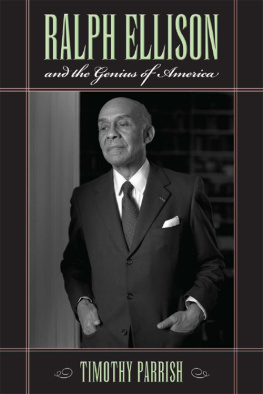Ralph Peters - Red Army
Here you can read online Ralph Peters - Red Army full text of the book (entire story) in english for free. Download pdf and epub, get meaning, cover and reviews about this ebook. genre: History. Description of the work, (preface) as well as reviews are available. Best literature library LitArk.com created for fans of good reading and offers a wide selection of genres:
Romance novel
Science fiction
Adventure
Detective
Science
History
Home and family
Prose
Art
Politics
Computer
Non-fiction
Religion
Business
Children
Humor
Choose a favorite category and find really read worthwhile books. Enjoy immersion in the world of imagination, feel the emotions of the characters or learn something new for yourself, make an fascinating discovery.

- Book:Red Army
- Author:
- Genre:
- Rating:5 / 5
- Favourites:Add to favourites
- Your mark:
- 100
- 1
- 2
- 3
- 4
- 5
Red Army: summary, description and annotation
We offer to read an annotation, description, summary or preface (depends on what the author of the book "Red Army" wrote himself). If you haven't found the necessary information about the book — write in the comments, we will try to find it.
Red Army — read online for free the complete book (whole text) full work
Below is the text of the book, divided by pages. System saving the place of the last page read, allows you to conveniently read the book "Red Army" online for free, without having to search again every time where you left off. Put a bookmark, and you can go to the page where you finished reading at any time.
Font size:
Interval:
Bookmark:


In the heart of a European forest, a young private dreams of home and rock 'n roll. At command headquarters, a four-star general pursues a family tradition of military honor that reaches back centuries. They could be any two soldiers in the world. It could be any armybut it's not. The place is the East German border.
The time is tomorrowand the Soviet Army is about to attack...
While Western leaders debate the use of nuclear weapons, the Soviet Army and its Warsaw Pact allies crash across West Germany, exploiting the NATO armies' deadly lack of preparation. In a matter of days, refugees clog the roads and cities are in shambles. The Soviet Army wages a brutal battle for Europeeven as the hidden rivalries and divided loyalties within its ranks begin to emerge.
In this extraordinary, controversial novel, author Ralph Petersa U.S. Army intelligence officer specializing in the Soviet militarytakes us inside an army of dozens of languages and ethnic backgrounds, into the belly of an armored personnel carrier, the cockpit of a MIG, and onto the bloody battlefield where sophisticated tanks duel like ancient, flame-spewing dragons.
From Chief of Staff Chibisov, fighting his ethnic heri-tage, to the daring tank commander Bezarin, locked in an unforgettable duel of wits with a British division, from bitter veterans of Afghanistan to raw recruits, a host of vivid characters are swept up in the chaos and drama.
Some will be heroes. Some will die, and others will have their souls scarred forever.
As the NATO armies make their last, desperate stands
divided by Soviet maneuvers and their own political squabblingRED ARMY thunders to a truly frightening climax.

PROLOGUE
Night came to Germany. In among the pines, the low, sharp-prowed hulls of the infantry fighting vehicles turned black, and the soldiers gathered closer into their squad groups, huddling against the weak rain.
Whenever possible, the vehicle commanders had tried to back off the trails in such a way that the nearby trees formed a protective barrier, allowing a safe sleeping space. Those who failed to pay attention to such details risked being crushed during a night alert.
The bivouac site was not virgin territory. When the unit had pulled in under the last afternoon grayness, which was more an ambience than a true light, it was evident that other troops had recently vacated the area.
Huge ruts and waves of churned mud, the signatures of tracked vehicles, had ruptured the trails and broken the forest floor. Tins and scraps of paper littered the remaining islands of moss and pine needles, and the smell of human waste was almost as strong as the odor of vehicle exhaust.
It was all instantly familiar to Leonid, who had just over a year's experience of training areas in East Germany, and he recognized his unit's good fortune in occupying the site while there was still a bit of visibility. The vehicles were much too cramped to sleep in, even had it been permitted, and when you arrived at a new location at night you had no idea where you might decently lie down.
For the first few days after the unit hurried out of garrison, they had 1
Ralph Peters
moved about only during the hours of darkness. But now the roads were constantly filled, and this last move had been conducted entirely during daylight, covered only by the overcast sky. Everyone craved news. It was evident that this was not a routine exercise, but little information reached the soldiers. Leonid had already heard enough rumors to cause him to worry. All of his life, his teachers and youth activities leaders had drummed into him that the United States and the other Western powers were anxious to unleash a nuclear war against the Soviet Union, and the descriptions of the horrors of such a conflict had been sufficiently graphic to stay with him. Now he wondered what in the world was happening.
Seryosha, the big man and unofficial leader of the squad's privates, sat under the awning of the vehicle's camouflage net, assuming its limited bit of protection against the elements as his due. He had opened an issue of combat rations. He picked at the food, telling more stories about his experiences with women. Seryosha was muscular and handsome, and he was from Leningrad. He loved to parade his sophistication.
Seryosha's audience, to which Leonid belonged, sat in a rough circle.
All lights were forbidden, but the officers had disappeared to wherever officers went, and several of the squad members smoked now. Along with the last feeble twilight, the welling glow of drawn cigarettes lent an eeriness to faces and objects that did nothing to improve Leonid's mood.
Off behind the trees, metal clanged against metal, and a voice fired a loud volley of what could only be curses in some Asian language. Then the local silence returned, coddled in the distant humming of the roads.
Sergeant Kassabian, their squad leader, came back from a trip into the woods. Leonid knew he was upset to find that Seryosha had broken open the reserve rations, but Kassabian paused before saying anything.
Seryosha ignored the sergeant's return. "And city girls," he went on,
"know their way around. No nonsense, lads. They like it, too, and they know you know it." He noisily fed himself another bite of dried biscuit.
"We're not supposed to be eating those rations," Sergeant Kassabian said suddenly, finding his courage.
Leonid could feel Seryosha grinning. Seryosha had a wide, ready grin that seemed to overcome all troubles. Leonid pictured that grin loaded with the chewed mush of the biscuit now. He resented Seryosha's power but could do nothing about it.
Seryosha moved over to make room under the camouflage for another body. "Come and sit down," he told Kassabian. "You can't eat promises.
If we wait for the battalion kitchens to feed us, it'll be the same story as last night. Come on, sit down. If there's a problem, I'll handle it."
Kassabian obediently took a seat beside Seryosha, as if the bigger boy's 2
natural authority might expand to include him. The rumble of another unit moving nearby seemed to bring a tangible weight to the darkness.
The shadowy form of the sergeant seemed very small, almost childlike, beside the broad-shouldered outline of Seryosha. Kassabian was really just a conscript like the rest of them, except that he had been chosen for a few months of extra training, after which he had received the rank of junior sergeant. Perhaps in another squad, he might have gained more authority, but here Seryosha was impossibly powerful. When the officers were around, Kassabian passed on military orders and seemed to rule.
But in the barracks, Seryosha was incontestably in charge.
"Seryosha," Leonid asked tentatively, desperately wanting to be included in the intimate circle of the group, "you think it's the real thing?"
The question was unexpected, and the seriousness in Leonid's voice spoiled the atmosphere of imagined women and the freedom to touch them. Leonid realized that he had used poor judgment, but it was too late. When Seryosha answered him, irritation undercut the practiced nonchalance of his voice.
"Think they'd trust us to lug around live rounds if it wasn't?" Seryosha laughed spitefully. "You think maybe we're going to the range and we've just been lost for the last several days? You think you're just out for a target shoot and snooze, boy?" Yet it was evident that Seryosha himself did not want to believe that they might truly go to battle.
Next pageFont size:
Interval:
Bookmark:
Similar books «Red Army»
Look at similar books to Red Army. We have selected literature similar in name and meaning in the hope of providing readers with more options to find new, interesting, not yet read works.
Discussion, reviews of the book Red Army and just readers' own opinions. Leave your comments, write what you think about the work, its meaning or the main characters. Specify what exactly you liked and what you didn't like, and why you think so.






